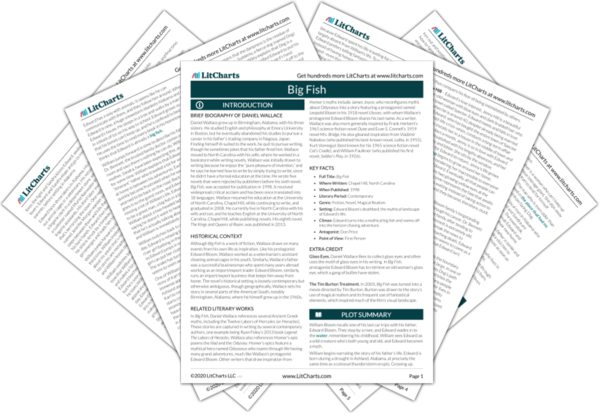Previous
Part 2: In Which He Has a Dream
|
Previous
Part 2: In Which He Has a Dream
|
Big Fish: Part 3: In Which He Buys a Town, and More Summary & Analysis |
Next
Part 3: How It Ends
|


Upgrade to unlock the analysis and theme tracking for all of Big FishBig Fish!
Get LitCharts A+